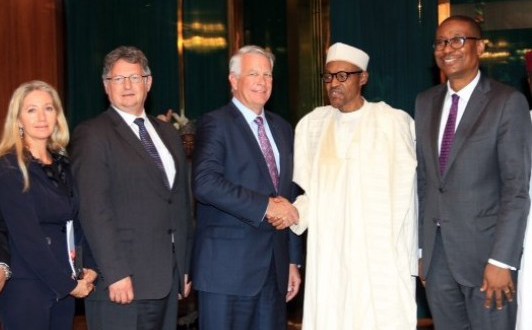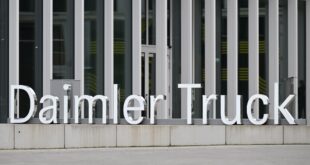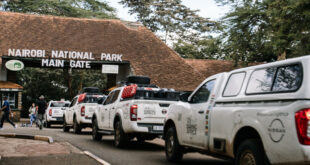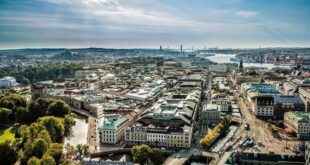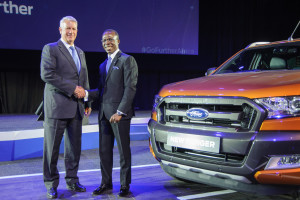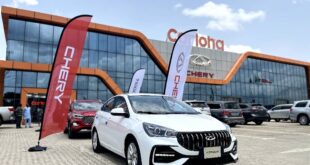Announcing the Ford Ranger Job number 1 at the Lagos assembly
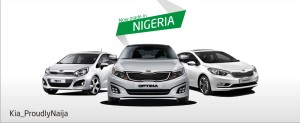
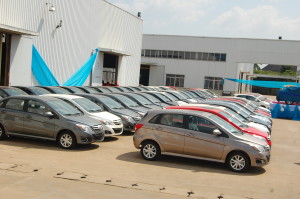
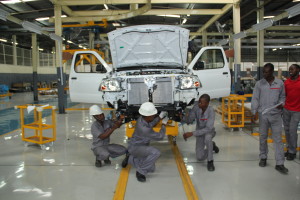
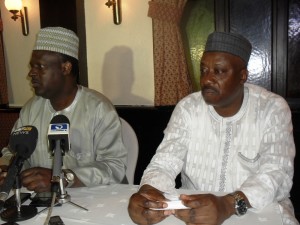
(Moses Akaigwe) It has been confirmed that last week’s visit by a delegation from African Association of Automotive Manufacturers (AAAM) was an essential step in the efforts to create a clement environment for the implementation of Nigeria’s automotive policy.
The association envisages that a vibrant auto industry in Nigeria will be a precursor to the development and promotion of a cohesive automotive strategy for the African continent.
The visit was also intended to help pave the way for a closer involvement of the Original Equipment Manufacturers (OEMs) in the new long-term auto industry development plan.
The Sun Motoring was informed that the need to check the dumping of second-hand (Tokunbo) vehicles from Europe and America and strengthen the Customs for the important role it has to play in the implementation of the components of the policy, were two of the three key points that dominated various meetings held by top government officials and the visiting AAAM.
Predictably, the imperative of addressing the problem of affordability and low patronage in the auto market by easing the process of owning new vehicles (through credit purchase schemes with soft terms), was also top on the agenda.
It was learnt that the AAAM, led by the Chairman, Mr. Jeff Nemeth, who is also the President and CEO of Ford Motor Company Sub-Saharan Africa Region, considers the commitment of President Muhammadu Buhari’s government to addressing the three issues as being critical to the implementation of the automotive policy which gave birth to the Nigeria Automotive Industry Development Plan (NAIDP).
This is generally predicated on the belief that a successful implementation of Nigeria’s auto industry development plan which formally took effect in July 1, 2015, is vital to AAAM’s vision of unlocking the economic potential of the African continent by promoting a policy environment that is conducive to the development of the automotive sector.
But, the association’s leadership, it was further gathered, was also mindful of the fact that industrial development on the continent is fraught with challenges, hence the resort to making the Nigerian automotive industry policy and the impediments to implementation, a case study for the continent-wide initiative. .
Giving more insight into the delegation’s mission last week, the Director of Policy and Strategy, National Automotive Design and Development Council (NADDC), Mr. Mamudu Lugman, explained that the two-day visit was a follow-up to a meeting held about three months earlier in South Africa where the three issues were underscored as crucial.
At the invitation of AAAM, the NADDC headed by the Director-General, Aminu Jalal, an engineer, had travelled to South Africa, where it made a presentation on Nigeria’s policy initiative, the implementation so far and the challenges being encountered.
Luqman confirmed that the delegation’s reciprocal visit to Nigeria was intended to further seek solutions to the identified challenges: “During the AAAM meetings with the government in Nigeria, strategies to remove these impediments were presented and a technical committee was advised to come up with a plan to re-launch an automotive development programme that would ensure the active involvement of the Original Equipment Manufacturers (OEMs)”.
So far, investments in response to the auto policy initiative has been largely by local entrepreneurs and existing plants like Kaduna-based PAN Nigeria (Peugeot) and Innoson Vehicle Manufacturing, Nnewi; Iron Products Industries, IPI, Ikotun, Lagos (which assembles Tata, etc); and Transit Support Services,TSS, which assembles Forland trucks in Enugu. Vehicle importers, namely Coscharis Motors, Dana Motors’ United Vehicle Assembly Limited (Kia), SCOA, Stallion Motors’s VON Automobile, and others, have also made huge investments.
“The technical committee which will draw members from the Presidency, Federal Ministry Finance, Federal Ministry of Industry Trade and Investment, NADDC, The Nigerian Customs”, the NADDC Director explained, “will be constituted within the week to examine already prepared technical notes and come up with a position that will be shared with AAAM in September”.
A consensus position reached at the bilateral meeting will then be conveyed to the Nigerian government for consideration.
Luqman also hinted that the credit purchase scheme with Wesbank technical support would be launched before the end of the year even as he confirmed that the commercial and financial model has been completed. “What is outstanding is meeting legal requirement especially as demanded by the Central Bank”.
Buhari assures AAAM of opportunities
Receiving the visitors on Tuesday, President Buhari had declared that Nigeria as a country recognised her problems early enough, but remained potential for too long, and so did not achieve much results.
President Buhari said that to reverse the trend, “we must avoid the mistakes made in the past by both government and manufacturers, and we are ready to get investment from all quarters, so that we can improve the lives of our people.”
The President lamented that Nigeria failed to develop on automobile initiatives started in Bauchi, Kaduna, Enugu, Lagos and Ibadan, and depended too much on oil as mainstay of her economy.
“We are making efforts to start our steel industry all over again. I see vast opportunities for both the country and those who invest here,” the President said.
Nemeth said the Association comprised potential investors who were ready to unlock investment potentials on the African continent.
“We are ready to offer strategic partnership with Nigeria. We want to promote investor-friendly regulatory frameworks and sustainable manufacturing.
“We will equally promote infrastructure development, job creation, and skills transfer,” he said. The AAAM delegation also held high-level discussions with ministers and officials of the NADDC and the National Automotive Manufacturers’ Association (NAMA). This is intended to create the framework for policy development to support the growth of the local industry.
AAAM’s vision
AAAM was inaugurated on November 25, 2015 by founding members BMW, Ford, General Motors, Nissan, Toyota and Volkswagen, focusing on key markets of the African Continent.
Outside of South Africa, which has a well-developed world-class automotive industry, Nigeria is recognised as a strategic market over the long term due to its demographics.
Although Nigeria is recognised as one of Africa’s largest economy, the automotive sector is relatively small, with an estimated 44 vehicles per 1 000 inhabitants, according to Deloitte Africa’s Automotive Insights, published in April 2016. “This is far below the global average of
180 vehicles per 1 000 inhabitants, and lower than other developing regions such as Latin America (176) and Asia, Oceania and the Middle East (79),” the report indicates.
“One of the biggest challenges we face in Africa is the lack of reliable data on the number of new and second-hand vehicles sold on the continent, as very few countries have formal reporting or legislative structures to monitor the automotive sector,” said Nemeth. “This is exacerbated by the large number of second-hand imports, with only a small proportion of new cars sold due to the high import duties and lack of affordable financing options.”
The delegation
The AAAM delegation included Mike Whitfield, Managing Director of Nissan South Africa and Vice Chairperson of AAAM; Ford executives; Dave Coffey, President of the National Association of Automotive Components and Allied Manufacturers; Alec Erwin, former South African Minister of Trade and Industry, and currently a consultant to the AAAM, and Cyril Zhungu, CEO of WesBank, South Africa’s largest automotive financing firm.
The visitors also met the Minister of State, Federal Ministry of Industry, Trade and Investment, Aisha Abubakar; the Permanent Secretary, Aminu Aliyu Bisalla; Special Adviser to the Minister on Trade, Chiedu Osakwe; Director-General of the National Automotive Design and Development Council (NADDC), Aminu Jalal, and other top ministry and NADDC officials.
 ..:: AUTO REPORT AFRICA ::..
..:: AUTO REPORT AFRICA ::..
